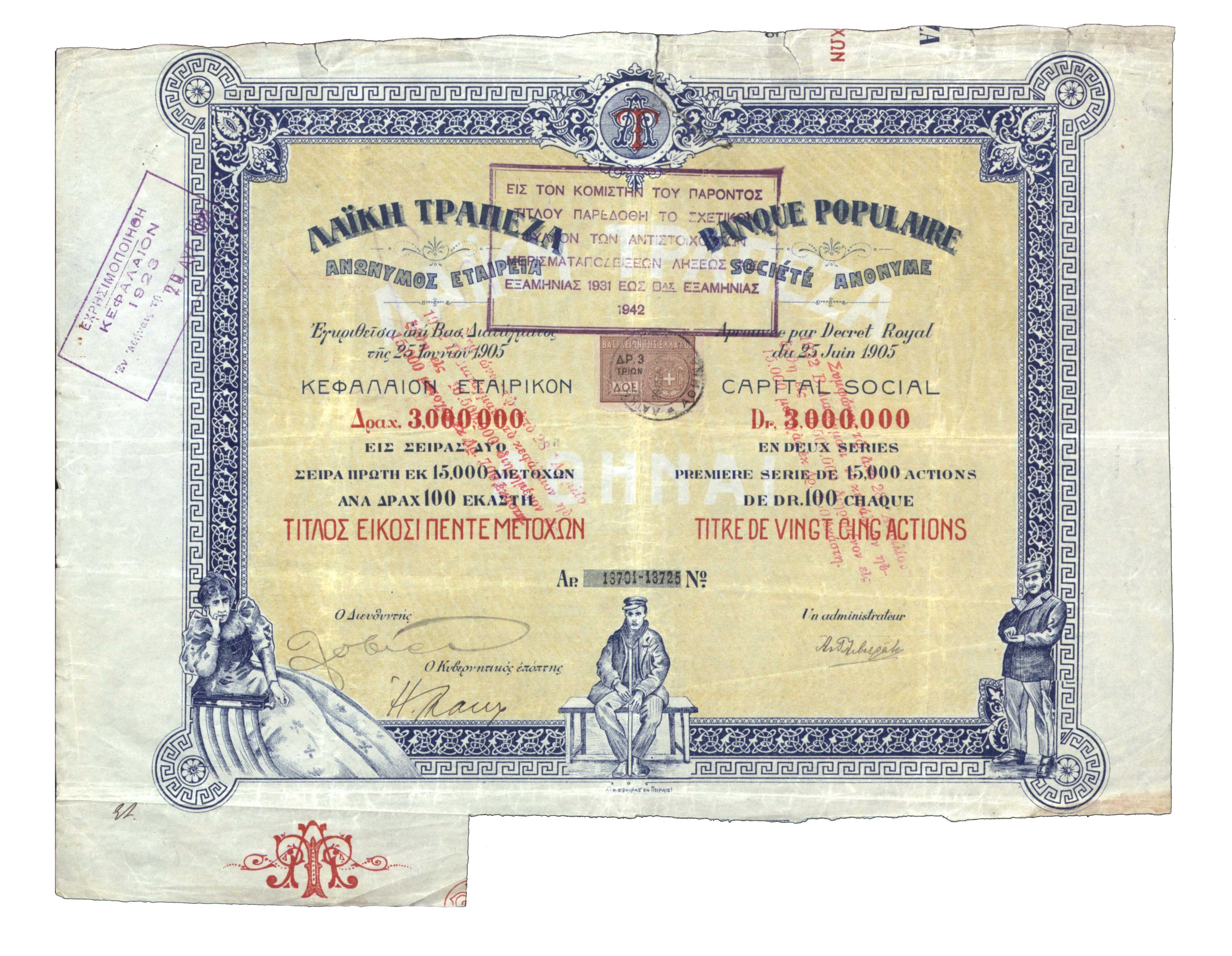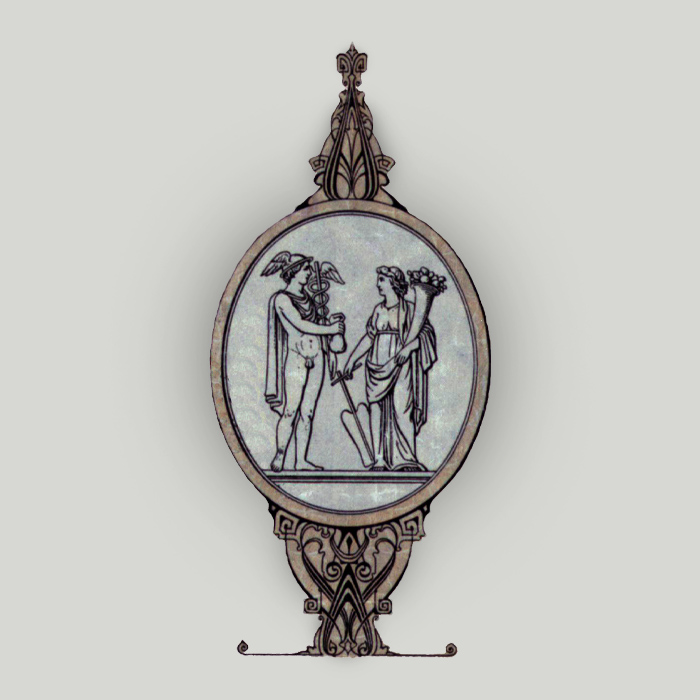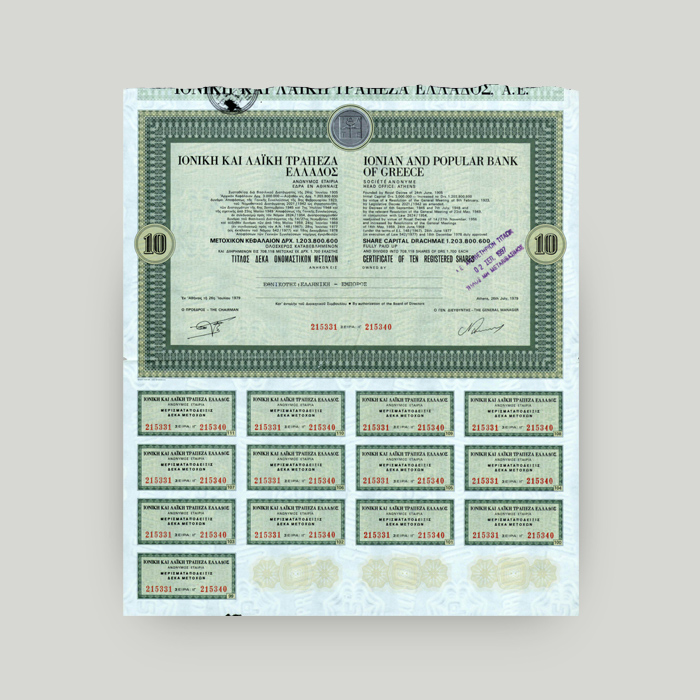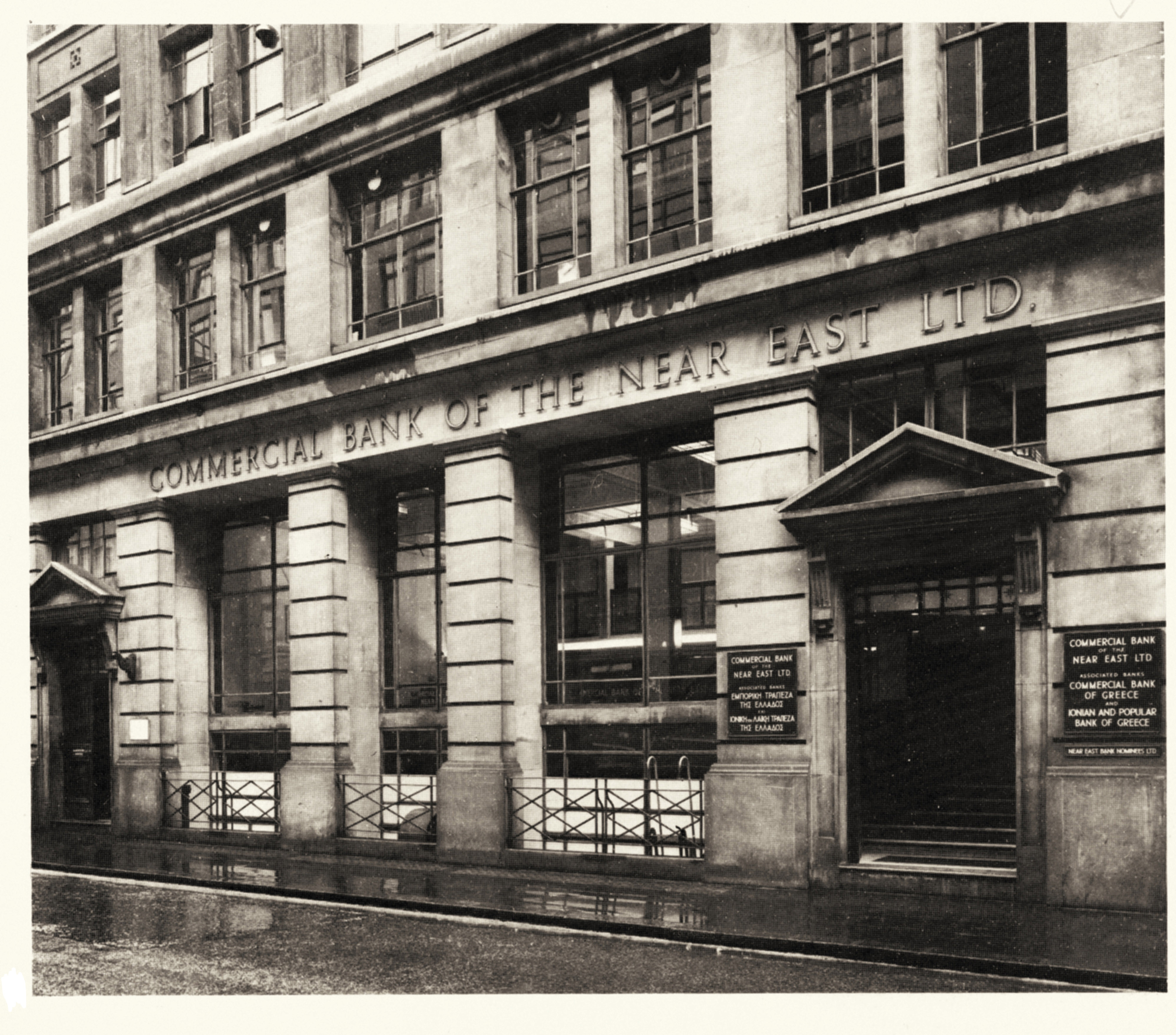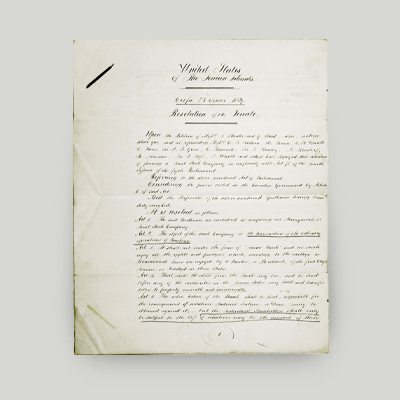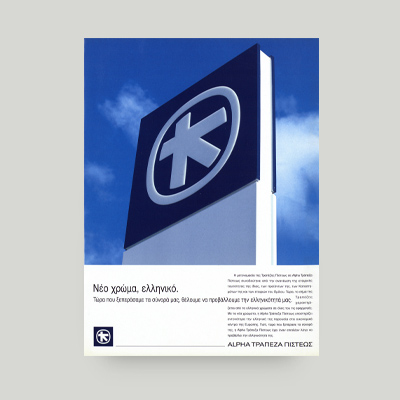Brief history of Popular Bank
Popular Bank was the first bank to address the needs of the budding Athenian working class. It promoted the concept and value of savings for working people and helped lower classes so they would not resort to loan sharks. The Popular Bank 25-share stock certificate from 1923 belongs to Alpha Bank’s collection of rare material spanning the years 1910-1950.
Popular Bank 25-share paper stock certificate to the nominal value of 100 drachmas, issued in 1923.
The text includes the bank’s name, year of establishment and share capital, the number of shares and the nominal price of each share, in Greek and French.
The bank details appear against an off-green background.
The initials of Popular Bank appear at top centre.
Plant decorative motifs and people figures make up the border wrapping the text.
Support to the lower-middle class
Popular Bank was founded in 1905 by Dionysios Loverdos with the aid of the National Bank of Greece.
Its fundamental purpose was to address the needs of the Athenian lower-middle class. Its operations were typical of this purpose: loans with jewellery, gold, furniture etc. as collateral, prepayment of teachers’ salaries, prepayment of pension cheques.
Soon the Greek government granted the bank permission to also provide pawnbroker services. Through these services, it was able to help vulnerable social groups that had previously been at the mercy of loan sharks.
In 1908 it joined newly-established insurance provider Anatoli to offer life insurance plans for pensioners.
Promoting a concept
During its first years of operation, the bank imported metal money boxes from the US and offered them to its customers. In so doing, it managed to successfully promote the concept and value of saving.
A fine building for the bank
From 1909 Popular Bank operated out of a privately-owned building on Panepistimiou Street. The building was designed by established architect Panos Karathanasopoulos.
An elegant glass ceiling covered the centre of the main hall. Artist Petros Roumpos executed the wall painting on the façade that showed how Popular Bank would remain true to its name and benefit the working class.
Popular Bank in times of distress
In 1911 a wave of panic among lower-middle-class depositors resulted in a bank run, but the bank managed to weather the storm.
During the Balkan Wars, it was able to continue operating seamlessly without even resorting to using the moratorium option, which would temporarily prevent any legal action against the bank. When WWI broke out, the bank was faced with yet another devastating bank run, but still managed to make it unscathed.
New branch and undertakings
The branch in Piraeus (Athens’ major port) opened in 1913. It soon moved to the iconic building on the Makra Stoa commercial street.
In 1916 Popular Bank became a limited partner in the partnership that founded J. F. Costopoulos Bank.
A year later it founded Pronia General Insurance SA, a transport and fire insurance provider.
In 1918 the bank launched an initiative to establish Geniki Bank of Greece. The new bank was intended as an investment bank (banque d’ affaires) that would offer a range of services the existing Greek banks at the time could not.
Geographic extension
Initially, Popular Bank only operated in the wider Athens area. During the Interwar period, however, the bank started to expand its network into other major Greek cities.
In 1927 Popular Bank moved its headquarters from the Panepistimiou Street building to a brand-new privately-owned building at the corner of 45 Panepistimiou Street and Pesmazoglou Street.
The end of an era
In 1934 founder Dionysios Loverdos died, followed in 1936 by his brother Spyros, who had succeeded him as the bank’s director. This series of events resulted in Popular Bank being acquired by Ionian Bank.
At the onset of the war between Italy and Greece, many of the bank’s employees were drafted to fight. In 1942 Popular Bank was forced to assign a part of its shares to the Italian government.
Not long after Greece was liberated, in 1945, it was confirmed by law that 15,929 Popular Bank shares had been forcibly assigned to an enemy state during the Nazi Occupation. The shares were reassigned to Ionian Bank, their legal owner after the merger.
In 1957 Ionian Bank sold its operations in Greece, including Popular Bank. The lot was acquired by Emporiki Bank.
The bank created when Ionian Bank’s operations were absorbed by Popular Bank was named Ionian and Popular Bank.
The Popular Bank 25-share stock certificate belongs to Alpha Bank’s collection of rare debt securities, shares and bonds.
The collection material mainly dates from the period between the 1910s and the 1950s. It is focused on Popular Bank’s activity first as a savings bank for lower-middle-class depositors and as a commercial bank later on.
The items of the collection – mostly paper ones – preserve financial data and artwork.
The Alpha Bank Historical Archives are not open to the public.
Research visits can be organised upon request.
Contact us to request a visit.
